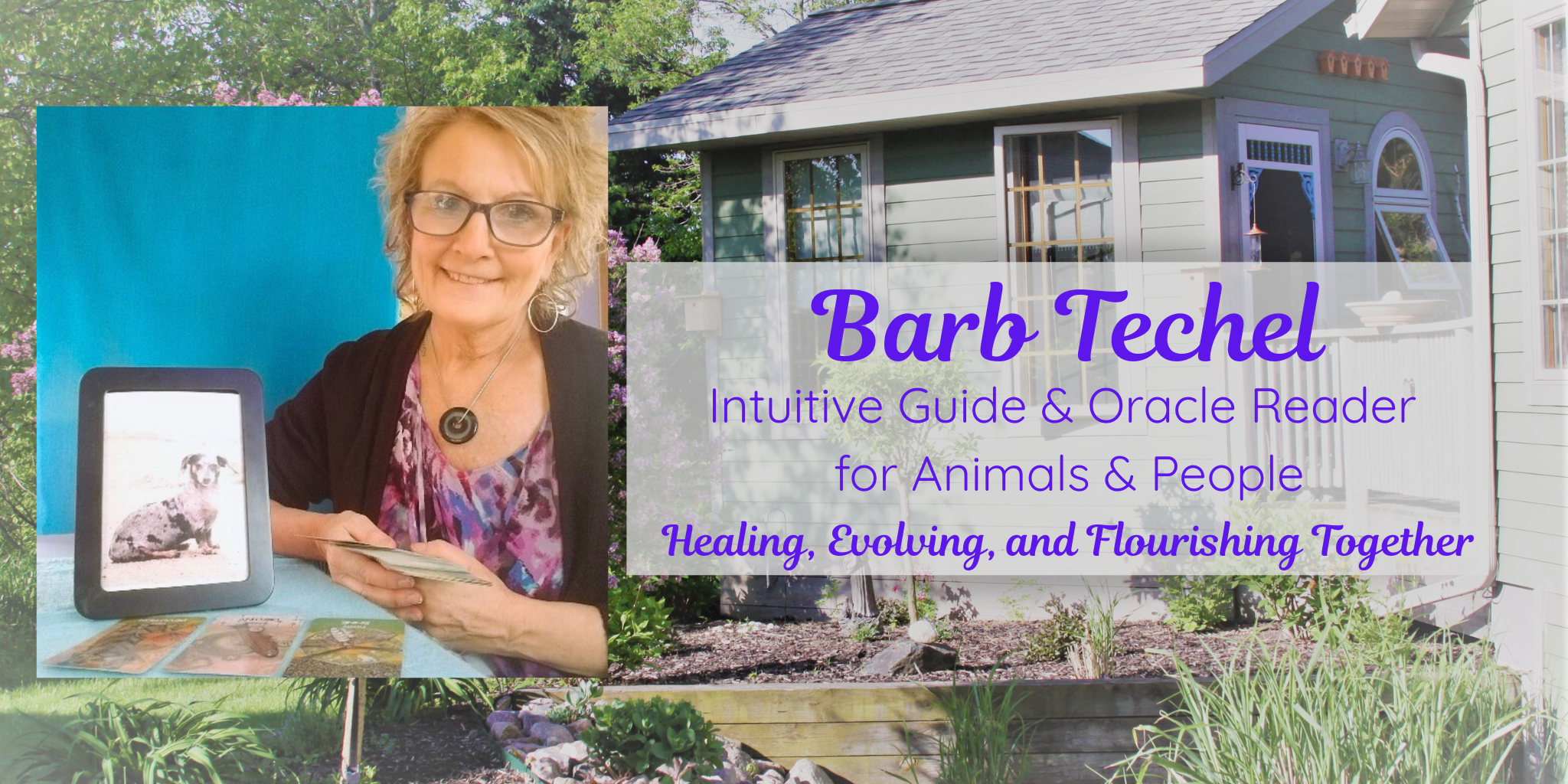On this weeks Joyful Paws Jaunt blog tour, I was interviewed by author and coach, Yvonne Perry on her podcast, We are One In Spirit.
Click here to listen to the interview.
Introduction from Yvonne about my segment
Do you remember when you first began exploring your spirituality? What inspired you to seek answers to life’s greatest questions? For Barbara Techel, it was her dogs that helped her to live more authentically and more joyfully.
After her dachshund, Frankie, suffered a spinal injury, Barbara had her custom-fitted for a wheelchair that allowed her to be mobile in spite of being partially paralyzed. Barbara quickly realized the beautiful opportunity she had to spread a positive message that animals with disabilities can and do live quality lives if given a chance. This translated into also helping people see their challenges in a positive way. Today, she is a passionate advocate for special needs pets such as dogs in wheelchairs, and those in particular that are diagnosed with Intervertebral Disc Disease (IVDD).
From the inspiration she gained from her little wiener dog on wheels, Barbara has found her life’s purpose. She let go of her fears, and began doing hospice work with Frankie as a therapy dog team. She let go of her fear of death and began to appreciate each day of her life. She has a special connection with all her animals, but two of them have let her know they are still with her now that they have passed into the afterlife. In the audio below, she offers a special message about grieving that you may find refreshing.
Barbara is the award-winning author of the children’s book series Frankie, the Walk ‘N Roll Dog which are true, inspirational stories about her paralyzed dachshund. From 2008-2012, Barbara and Frankie made over 350 appearances to schools and libraries in Wisconsin, as well as many visits to classrooms across the US and Canada via Skype. They were also a therapy dog team visiting local facilities and logged over 250 visits spreading joy wherever they went.
In August 2012, she founded National Walk ‘N Roll Dog Day in memory of Frankie and in honor of all dogs in wheelchairs. She also started the Frankie Wheelchair Fund, which helps families who can’t afford wheelchairs for their disabled dogs. To date, this fund has helped thirteen dogs, who may not otherwise had the opportunity, to get a wheelchair.
In her newest book, Through Frankie’s Eyes Barbara takes you on a journey that led her to live her own truth and live with more joy, all because of what Frankie taught her along the way. Enjoy this interview as Barbara shares her story with Yvonne Perry on We Are One in Spirit Podcast.
***
For more intuitive and inspiring podcasts with Yvonne, I invite and encourage you the visit her website today.
Don’t forget! You can win a copy of my new book through Goodreads! I’m giving away two copies, but hurry as you must enter by midnight on Monday, March 25th! Good luck!


![IMG_1405[1]](https://joyfulpaws.com/wp-content/uploads/2013/03/IMG_14051.jpg)
